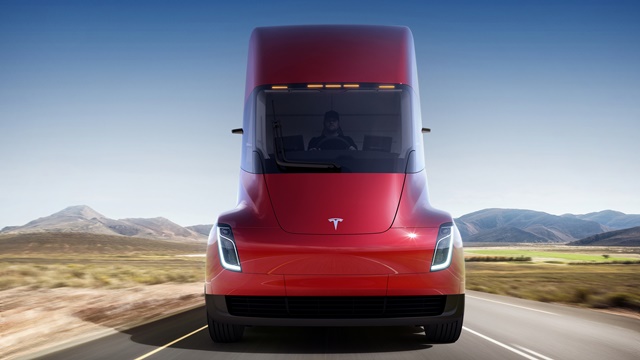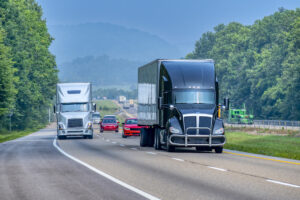WASHINGTON — Autonomous vehicles (AVs) promise to bring many mobility benefits and reduce traffic crashes enormously, as the federal government notes 94 percent of crashes are estimated to involve driver error.
However, there will continue to be crashes, injuries and fatalities involving AVs, especially for the many years ahead when AVs share the road with vehicles driven by humans.
The Governors Highway Safety Association’s (GHSA’s) new report, “Preparing for Automated Vehicles: Traffic Safety Issues for States,” funded by State Farm, analyzes market trends and finds that most AVs for the foreseeable future will share driving responsibility with humans, and are likely do so for many decades.
Human operators will still exert significant control and will be able to change their vehicle’s AV level dynamically, just as drivers today can activate or deactivate cruise control, the report, authored by Dr. Jim Hedlund, a former senior official with the National Highway Traffic Safety Administration, said.
“Imperfect human drivers aren’t disappearing anytime soon and even with self-driving technology, they will still be in a position to cause crashes, deaths, and injuries on our roads,” said Jonathan Adkins, GHSA executive director. “As autonomous vehicle technology advances, states still must invest in programs to prioritize safe travel behavior.”
The report was developed with input from an advisory panel of experts representing the American Association of Motor Vehicle Administrators, the American Association of State Highway and Transportation Officials, the Insurance Institute for Highway Safety, the Intelligent Transportation Society of America, the Michigan Office of Highway Safety Planning, the New York State Police, the Pennsylvania Department of Transportation, the Self Driving Coalition for Safer Streets, State Farm and
Waymo.
Survey research aggregated for the report shows that many consumers are skeptical about AVs.
“Many people are unconvinced of the safety benefits of AVs and unwilling to share the road or to ride in them,” said Ryan Gammelgard, counsel at State Farm. “However, research suggests that public enthusiasm and support will grow as people learn more about AVs and are able to experience them first-hand, and if there is objective proof that the technology operates better than humans.”
The new report notes that autonomous technology short of full automation presents a number of important behavioral safety issues related to how operators and passengers use this technology.
Inattention is of particular concern when operators expected to monitor driving may not do so as diligently as they should, and even an operator who does not need to monitor the road for long periods of time may not be able to quickly re-engage if distracted. Unlicensed operators also pose potential harm, as they may be able to activate an AV but be prevented from taking over control of the vehicle if needed.
“States need to consider a number of new issues related to the practical deployment of this technology,” Hedlund said. “One of the most important goals should be to educate the public about the benefits and risks of this technology, how to use it safely, and drive near AVs in traffic.”
The report also recommends that states:
- Consider laws requiring or assuming that a licensed driver is present in each vehicle, especially for AVs in which a licensed driver may be called upon to take control.
- Update traffic laws to accommodate AVs and help to prepare state driver licensing agencies to identify and register AVs.
- Establish law enforcement policies and procedures regarding AV operations and train all patrol officers in these policies and procedures. Law enforcement will need to know how to handle AVs in traffic stops and crashes, and plan for how AVs might change the nature of traffic enforcement.
The full report and accompanying infographics are available at ghsa.org/resources/AutomatedVehicles18.
The Governors Highway Safety Association is a nonprofit association representing the highway safety offices of states, territories, the District of Columbia and Puerto Rico.
The Trucker News Staff produces engaging content for not only TheTrucker.com, but also The Trucker Newspaper, which has been serving the trucking industry for more than 30 years. With a focus on drivers, the Trucker News Staff aims to provide relevant, objective content pertaining to the trucking segment of the transportation industry. The Trucker News Staff is based in Little Rock, Arkansas.














